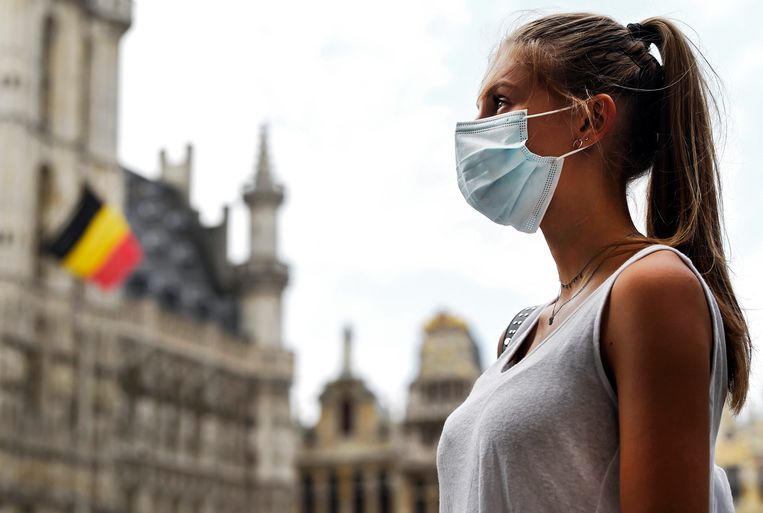The expected fourth wave of the coronavirus pandemic has begun, according to Belgium’s Health Minister Frank Vandenbroucke (Vooruit).
Belgium’s council of ministers will hold an emergency meeting on Monday to discuss the worsening epidemiological situation, and in that meeting they’ll consider reintroducing previously phased out rules like the mandatory wearing of face masks indoors.
In the meantime, here are the rules as they stand now, according to VRT.
Mandatory mask wearing
Public transport: in indoor areas of public transport and airports, everyone older than 12 must wear a mask. You are not required to wear one at outdoor stops.
Healthcare: In healthcare facilities, such as hospitals and residential care centres, you must wear a mask.
High-contact professions: In medical and non-medical contact professions, for example hairdressers and beauticians, both clients and staff must wear a mask.
Events: At indoor events, such as concerts, sporting events or conferences, where more than 500 people are present and where the Covid Safe Ticket is not used, you must wear a mask.
Regional Differences: While in Flanders, masks are generally not required at work, in the hospitality sector or in shops, they are in Wallonia and in Brussels, which have lower vaccination rates than the northern region of Belgium. Some of the mask-policies in Flanders vary from place to place, with some stores still posting signs requiring the wearing of a mask, and some major employers (like the University of Antwerp) are strengthening their own requirements, which were never relaxed as much as regional ones.
When to test for Covid-19
Experts say this season’s flus and colds are hitting no harder than normal, so if people are experiencing symptoms like coughing, shortness of breath, chest pain and loss of smell or taste, they should be tested for Covid-19.
Other symptoms of coronavirus include: fever, muscle pain, fatigue, runny or stuffy nose, sore throat, headache, loss of appetite, watery diarrhoea, acute confusion, or a sudden fall. When it comes to this list, having two or more symptoms should prompt one to get tested.
Testing can be done via a General Practitioner, a hospital, or a designated testing centre.
Quarantine versus isolation
Quarantine is a preventative measure for someone who believes they may have been infected with the coronavirus but isn’t yet sure. They are still permitted to go to the pharmacy, the doctor and the supermarket, but must wear a mask, wash their hands often, and take their temperature twice a day.
Isolation is when a person has tested positive. In that case, they must remain home for at least ten days, and after those ten days, they cannot leave isolation until they have been feverless for three days and are no longer experiencing breathing difficulties.
Quarantine rules for children
When it comes to school-aged children, a class must quarantine if more than one infection is found in a single week. However, that class can return to school if they all test negative on day one.
For this reason, contact in primary school is considered low-risk.
If an infection is discovered outside the classroom or daycare, such as at a sport or youth activity like scouting, the rules are stricter, even for children under the age of 12: after a positive case is detected, all high-risk contacts must go into quarantine.
A high-risk contact is someone who was with the infected person for more than 15 minutes at a distance less than 1.5 metres apart, without the wearing of masks. This also applies to fully-vaccinated individuals.
Quarantine rules for adults
All adults who have had a high-risk contact with someone who tests positive for Covid-19 must quarantine and get tested on day one, fully-vaccinated or not.
If the test is negative, they can leave quarantine, but should also be tested again on day seven.
For those who are not full-vaccinated, they must remain in quarantine until a negative test on day seven.
Adults who can work from home may do so while quarantined. Those who cannot work from home while quarantined can be issued a quarantine certificate.
Self-employed persons who cannot work due to quarantine or self-isolation can apply for a “bridging right.”

